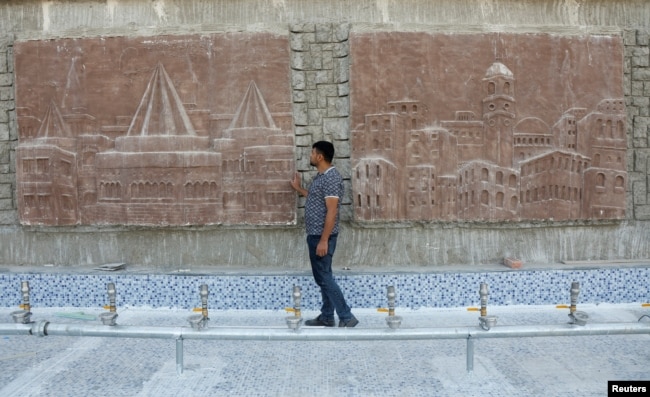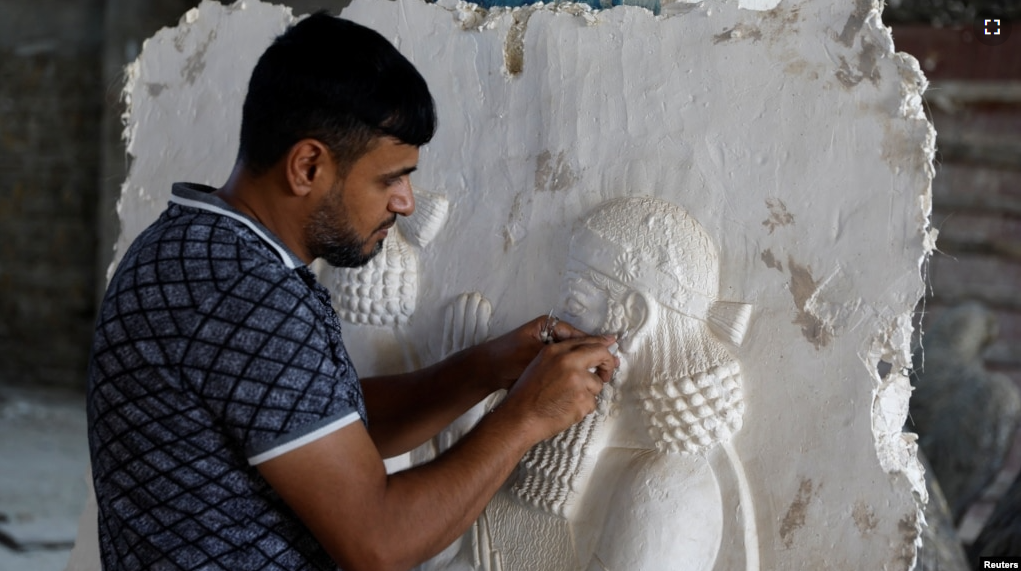Iraqi artist Khaled Al-Abadi’s dream is to recreate historical objects that were damaged during years of war.
Al-Abadi is a sculptor. In his Mosul workshop, he carefully shapes objects into pieces of art — lions, chariots, birds, and more.
Al-Abadi told the Reuters news agency, “During the Islamic State period, when my colleague and I were walking around, we would see the statues that were removed, and the gates that were being demolished, we were really troubled by this.” Demolished is a term that means destroyed.
Al-Abadi’s clay-based artworks show the country’s long history – from the Assyrian period through the Islamic State occupation.
“We want to remind the coming generations that this is the history of Nineveh,” he said, talking about the ancient Assyrian city located close to modern Mosul. “This is the history of Mosul. This is the history of Iraq.”

The area where about 20 murals are displayed is located in old Mosul, a part of the city that suffered heavy damage during the war to take back the city from Islamic State militants. These militants destroyed many of its ancient sites.
The country’s rich cultural history has long suffered during its conflicts. Last year, ancient objects stolen and taken out of Iraq after the U.S. invasion in 2003 were put on display in Baghdad.
One of the objects on display included a 3,500-year-old clay tablet with part of the Epic of Gilgamesh, the ancient Sumerian story believed to be one of the world’s first written works.
I’m John Russell.
Charlotte Bruneau reported on this story for Reuters. John Russell adapted it for VOA Learning English.
________________________________________________________________________
Words in This Story
chariot – n. a carriage with two wheels that was pulled by horses and was raced and used in battle in ancient times
colleague – n. a person who works with you : a fellow worker
mural – n. a usually large painting that is done directly on the surface of a wall
tablet – n. a flat piece of stone, clay, or wood that has writing on it
